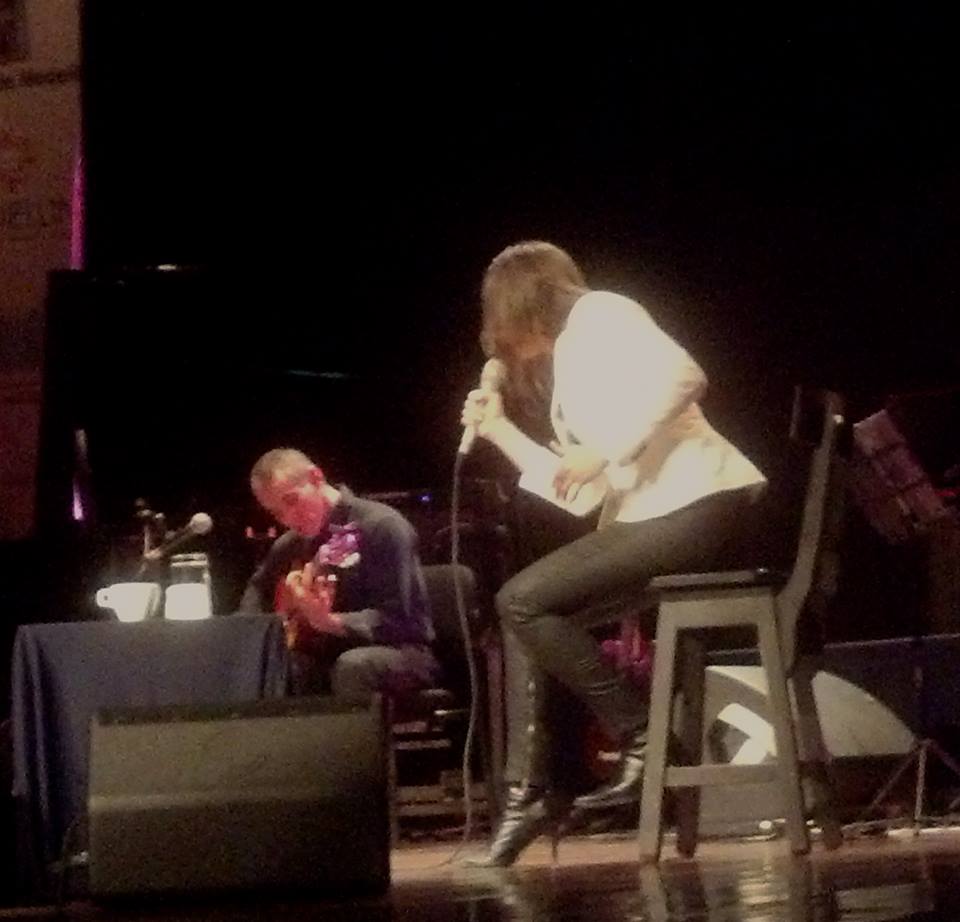Malena Muyala is, at age 43, a distinctive tango vocalist who just might be generationally defining. She advances a view of time that has little, if anything, to do with nostalgia. This distinguishes her, by way of comparison, from two of the innovative female vocalists who came before her. Adriana Varela, two decades older, is steeped, in her very person, in the loss of things once loved, while Dolores Solá, of La Chicana, astoundingly (if barely) in her ‘50s, sings tango as historical form, in the ambit of circus, cabaret, and Iberian song. Muyala, whom I saw on Friday in Medellín, Colombia, neither yearns for the past nor reconstructs it. She knows that, while the same river cannot be stepped into even once, not everything in it goes away for good, for it is not without swirls and brackish movements upstream. When she sings a milonga like Homero Manzi’s “Pena mulata” it is as though it has flowed downstream from the past and is eddying in the present.
That she is Uruguayan rather than Argentinian has something to do with this, for the African strain in the origins of tango is alive today on the streets of Montevideo, not as nostalgia, but as living form. In the tango world of Malena Muyala, its sister forms and criollo influences – candombe, vals, zamba, milonga – aren’t there to add variety; they are part of its substance; and the sound that emerges is gorgeously dreamy. From her tall, supple frame comes a voice that rises to a point of suspension, spreads outward like a cloud, and turns to reverie. She is of both culture and the cosmos, swapping nostalgia for a lived experience of the mysteries of time. In the brilliant “Pasos,” everything passes – streets, lives, parents, time, love – yet each time the song is sung they come by again. But who, or what, is actually in passage? “Viajera,” her signature song, reminds us that it is just as likely we who do the passing by.
All else that she sings sits between those two songs as moments in time that feel both transient and eternal. The beautiful duets of “Naranjo en flor” and “En esta tarde gris,” sung with her guitarist and arranger Fredy Pérez, exceed, by virtue of the sight of them onstage, even the perfect balance of their voices; something in the air goes grey, or smells of orange blossoms. To hear her sing, back to back, Troilo’s “Che bandoneón” and Gardel’s “Guitarra mía” is to grasp the way in which musical instruments, by virtue of their existence in time, acquire the force of a human personality. Near the end of “Guitarra mía,” the band behind her, including the guitar, goes mute, and her voice carries its presence, hovering at the top of an updraft and dispersing to the universe as the instruments reassert their materiality.
It is astounding that a voice so celestial is also so grounded, and of a place. To be reminded that the roots of tango are as much Uruguayan as Argentinian, there is no one better to listen to, and she isn’t shy about making the point. As an entry to her final song in Medellín she rattled off an amazing scat of tango figures with Uruguayan connections, from the composer of “La cumparsita,” Matos Rodriguez, and others, until finally, pointing her finger as though pricking the back of the house with a needle, she added the words, in the city where he died and is still celebrated, “¡y Gardel!”
For more on Malena Muyala, click here.
